Identifying and Evaluating Credible Sources Essay: A Guide
VerifiedAdded on 2020/10/22
|9
|1307
|272
Essay
AI Summary
This essay delves into the crucial role of credible sources in the context of technological advancements and globalization, emphasizing the need for robust research and writing skills. It highlights the challenges posed by the vast availability of information, including the prevalence of ambiguous data, and underscores the importance of evaluating sources based on Aristotle's principles of ethos, logos, and pathos. The essay provides practical guidelines for assessing information, such as considering the publication date and author's reputation, and recommends resources like Google Scholar. It discusses the impact of digital platforms on research, the evolution of e-learning, and the necessity of avoiding legal violations like IPR. Furthermore, it addresses the role of gatekeepers in maintaining information standards and the blurring lines between information and advertising in the digital environment. The essay concludes by acknowledging the benefits of digital tools while emphasizing the importance of adhering to ethical guidelines and regulations for reliable academic writing.
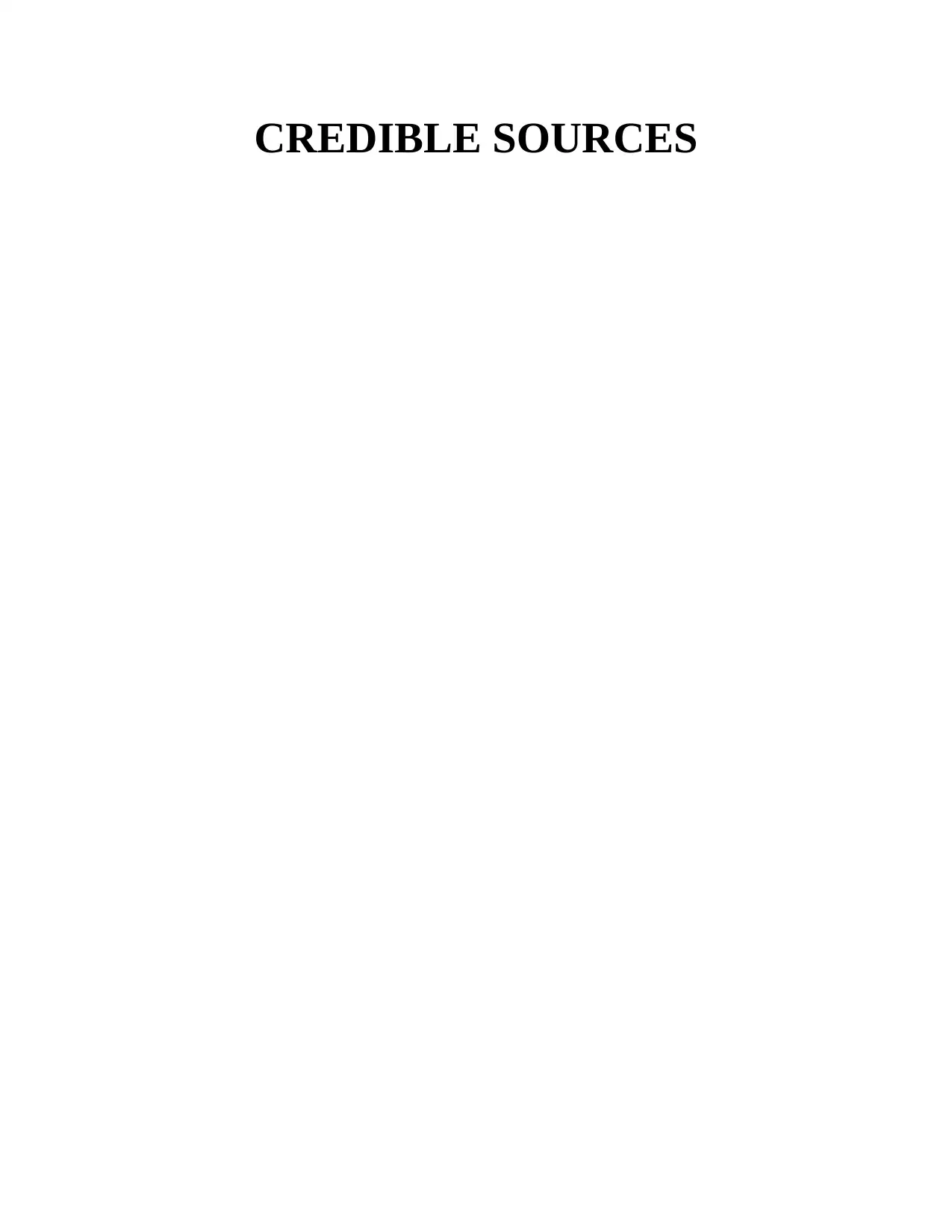
CREDIBLE SOURCES
Paraphrase This Document
Need a fresh take? Get an instant paraphrase of this document with our AI Paraphraser
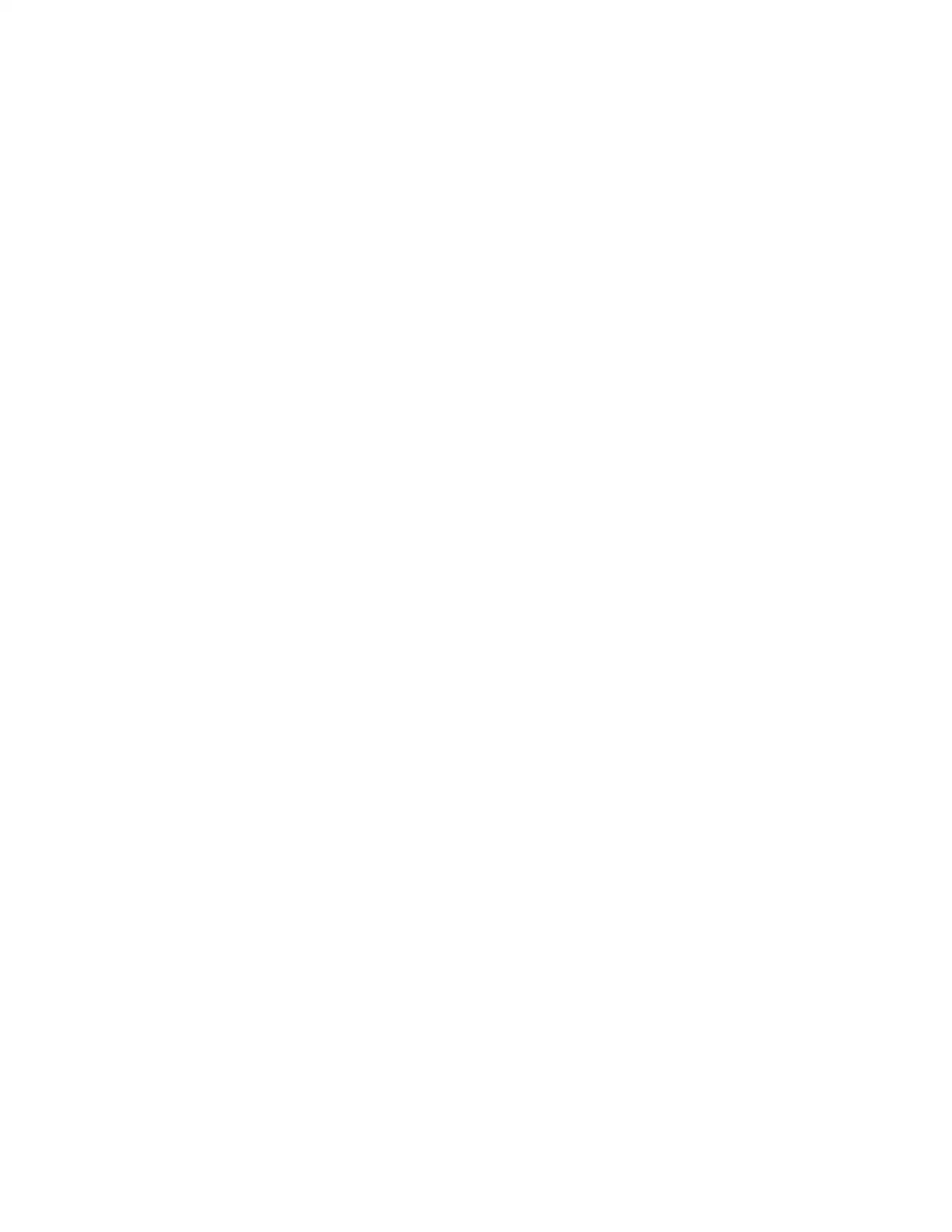
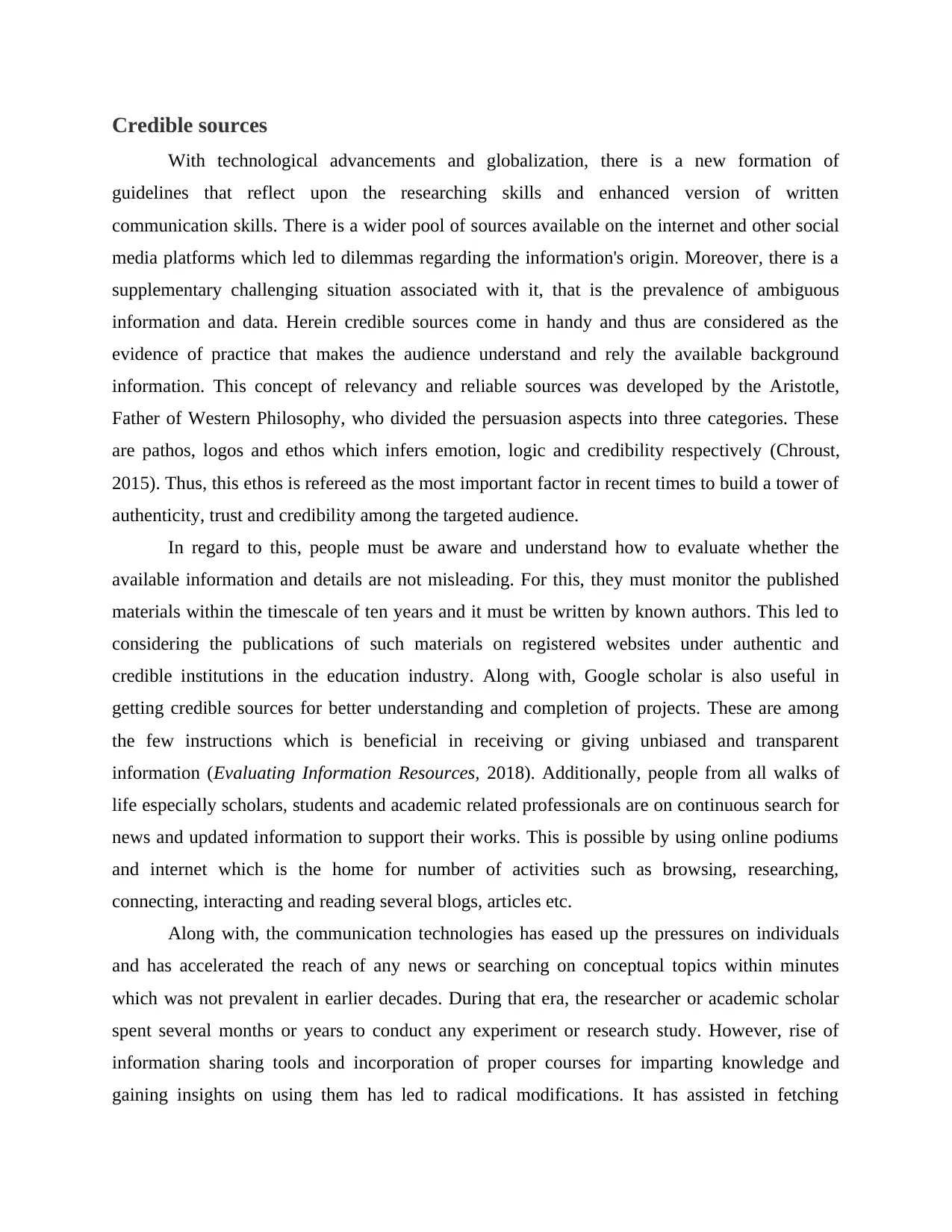
Credible sources
With technological advancements and globalization, there is a new formation of
guidelines that reflect upon the researching skills and enhanced version of written
communication skills. There is a wider pool of sources available on the internet and other social
media platforms which led to dilemmas regarding the information's origin. Moreover, there is a
supplementary challenging situation associated with it, that is the prevalence of ambiguous
information and data. Herein credible sources come in handy and thus are considered as the
evidence of practice that makes the audience understand and rely the available background
information. This concept of relevancy and reliable sources was developed by the Aristotle,
Father of Western Philosophy, who divided the persuasion aspects into three categories. These
are pathos, logos and ethos which infers emotion, logic and credibility respectively (Chroust,
2015). Thus, this ethos is refereed as the most important factor in recent times to build a tower of
authenticity, trust and credibility among the targeted audience.
In regard to this, people must be aware and understand how to evaluate whether the
available information and details are not misleading. For this, they must monitor the published
materials within the timescale of ten years and it must be written by known authors. This led to
considering the publications of such materials on registered websites under authentic and
credible institutions in the education industry. Along with, Google scholar is also useful in
getting credible sources for better understanding and completion of projects. These are among
the few instructions which is beneficial in receiving or giving unbiased and transparent
information (Evaluating Information Resources, 2018). Additionally, people from all walks of
life especially scholars, students and academic related professionals are on continuous search for
news and updated information to support their works. This is possible by using online podiums
and internet which is the home for number of activities such as browsing, researching,
connecting, interacting and reading several blogs, articles etc.
Along with, the communication technologies has eased up the pressures on individuals
and has accelerated the reach of any news or searching on conceptual topics within minutes
which was not prevalent in earlier decades. During that era, the researcher or academic scholar
spent several months or years to conduct any experiment or research study. However, rise of
information sharing tools and incorporation of proper courses for imparting knowledge and
gaining insights on using them has led to radical modifications. It has assisted in fetching
With technological advancements and globalization, there is a new formation of
guidelines that reflect upon the researching skills and enhanced version of written
communication skills. There is a wider pool of sources available on the internet and other social
media platforms which led to dilemmas regarding the information's origin. Moreover, there is a
supplementary challenging situation associated with it, that is the prevalence of ambiguous
information and data. Herein credible sources come in handy and thus are considered as the
evidence of practice that makes the audience understand and rely the available background
information. This concept of relevancy and reliable sources was developed by the Aristotle,
Father of Western Philosophy, who divided the persuasion aspects into three categories. These
are pathos, logos and ethos which infers emotion, logic and credibility respectively (Chroust,
2015). Thus, this ethos is refereed as the most important factor in recent times to build a tower of
authenticity, trust and credibility among the targeted audience.
In regard to this, people must be aware and understand how to evaluate whether the
available information and details are not misleading. For this, they must monitor the published
materials within the timescale of ten years and it must be written by known authors. This led to
considering the publications of such materials on registered websites under authentic and
credible institutions in the education industry. Along with, Google scholar is also useful in
getting credible sources for better understanding and completion of projects. These are among
the few instructions which is beneficial in receiving or giving unbiased and transparent
information (Evaluating Information Resources, 2018). Additionally, people from all walks of
life especially scholars, students and academic related professionals are on continuous search for
news and updated information to support their works. This is possible by using online podiums
and internet which is the home for number of activities such as browsing, researching,
connecting, interacting and reading several blogs, articles etc.
Along with, the communication technologies has eased up the pressures on individuals
and has accelerated the reach of any news or searching on conceptual topics within minutes
which was not prevalent in earlier decades. During that era, the researcher or academic scholar
spent several months or years to conduct any experiment or research study. However, rise of
information sharing tools and incorporation of proper courses for imparting knowledge and
gaining insights on using them has led to radical modifications. It has assisted in fetching
⊘ This is a preview!⊘
Do you want full access?
Subscribe today to unlock all pages.

Trusted by 1+ million students worldwide
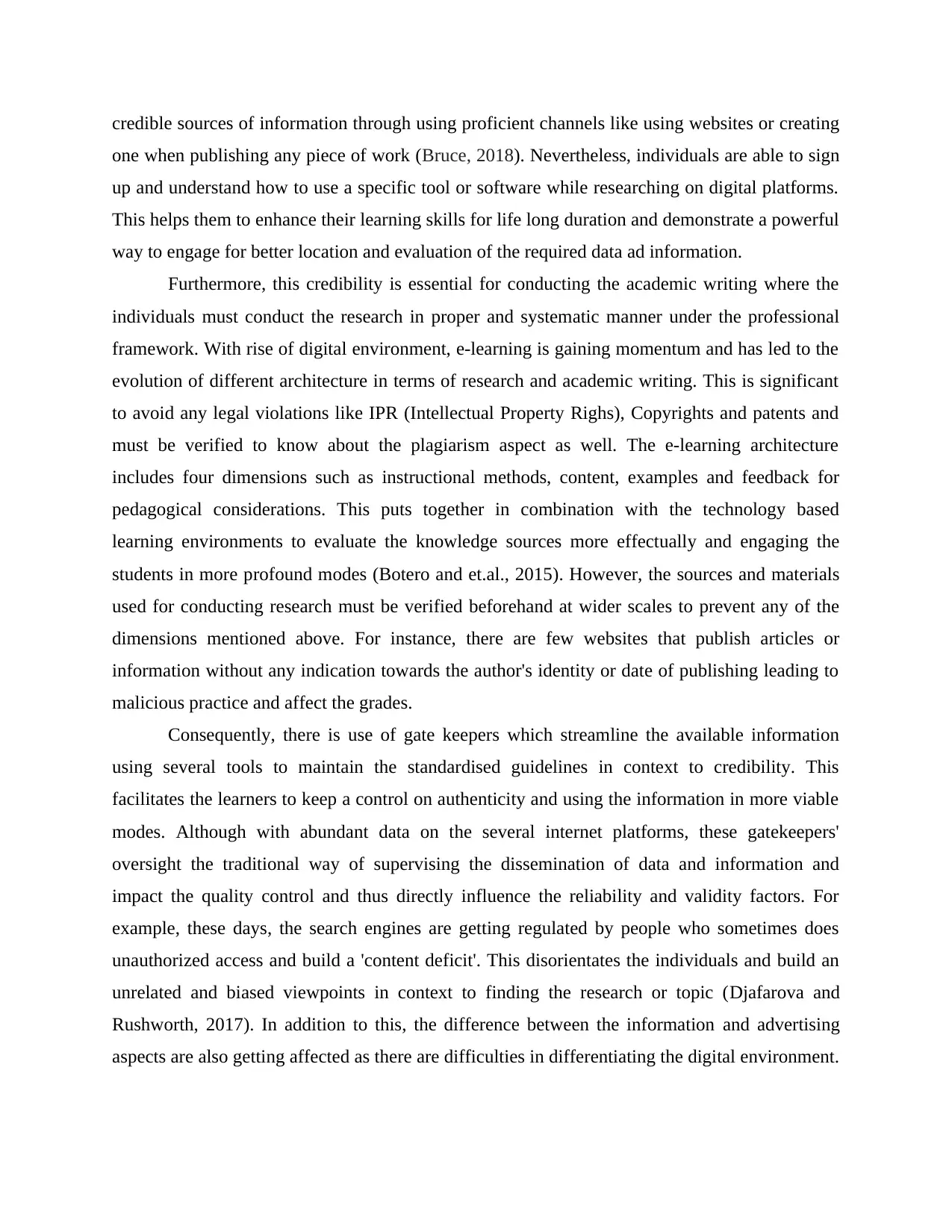
credible sources of information through using proficient channels like using websites or creating
one when publishing any piece of work (Bruce, 2018). Nevertheless, individuals are able to sign
up and understand how to use a specific tool or software while researching on digital platforms.
This helps them to enhance their learning skills for life long duration and demonstrate a powerful
way to engage for better location and evaluation of the required data ad information.
Furthermore, this credibility is essential for conducting the academic writing where the
individuals must conduct the research in proper and systematic manner under the professional
framework. With rise of digital environment, e-learning is gaining momentum and has led to the
evolution of different architecture in terms of research and academic writing. This is significant
to avoid any legal violations like IPR (Intellectual Property Righs), Copyrights and patents and
must be verified to know about the plagiarism aspect as well. The e-learning architecture
includes four dimensions such as instructional methods, content, examples and feedback for
pedagogical considerations. This puts together in combination with the technology based
learning environments to evaluate the knowledge sources more effectually and engaging the
students in more profound modes (Botero and et.al., 2015). However, the sources and materials
used for conducting research must be verified beforehand at wider scales to prevent any of the
dimensions mentioned above. For instance, there are few websites that publish articles or
information without any indication towards the author's identity or date of publishing leading to
malicious practice and affect the grades.
Consequently, there is use of gate keepers which streamline the available information
using several tools to maintain the standardised guidelines in context to credibility. This
facilitates the learners to keep a control on authenticity and using the information in more viable
modes. Although with abundant data on the several internet platforms, these gatekeepers'
oversight the traditional way of supervising the dissemination of data and information and
impact the quality control and thus directly influence the reliability and validity factors. For
example, these days, the search engines are getting regulated by people who sometimes does
unauthorized access and build a 'content deficit'. This disorientates the individuals and build an
unrelated and biased viewpoints in context to finding the research or topic (Djafarova and
Rushworth, 2017). In addition to this, the difference between the information and advertising
aspects are also getting affected as there are difficulties in differentiating the digital environment.
one when publishing any piece of work (Bruce, 2018). Nevertheless, individuals are able to sign
up and understand how to use a specific tool or software while researching on digital platforms.
This helps them to enhance their learning skills for life long duration and demonstrate a powerful
way to engage for better location and evaluation of the required data ad information.
Furthermore, this credibility is essential for conducting the academic writing where the
individuals must conduct the research in proper and systematic manner under the professional
framework. With rise of digital environment, e-learning is gaining momentum and has led to the
evolution of different architecture in terms of research and academic writing. This is significant
to avoid any legal violations like IPR (Intellectual Property Righs), Copyrights and patents and
must be verified to know about the plagiarism aspect as well. The e-learning architecture
includes four dimensions such as instructional methods, content, examples and feedback for
pedagogical considerations. This puts together in combination with the technology based
learning environments to evaluate the knowledge sources more effectually and engaging the
students in more profound modes (Botero and et.al., 2015). However, the sources and materials
used for conducting research must be verified beforehand at wider scales to prevent any of the
dimensions mentioned above. For instance, there are few websites that publish articles or
information without any indication towards the author's identity or date of publishing leading to
malicious practice and affect the grades.
Consequently, there is use of gate keepers which streamline the available information
using several tools to maintain the standardised guidelines in context to credibility. This
facilitates the learners to keep a control on authenticity and using the information in more viable
modes. Although with abundant data on the several internet platforms, these gatekeepers'
oversight the traditional way of supervising the dissemination of data and information and
impact the quality control and thus directly influence the reliability and validity factors. For
example, these days, the search engines are getting regulated by people who sometimes does
unauthorized access and build a 'content deficit'. This disorientates the individuals and build an
unrelated and biased viewpoints in context to finding the research or topic (Djafarova and
Rushworth, 2017). In addition to this, the difference between the information and advertising
aspects are also getting affected as there are difficulties in differentiating the digital environment.
Paraphrase This Document
Need a fresh take? Get an instant paraphrase of this document with our AI Paraphraser
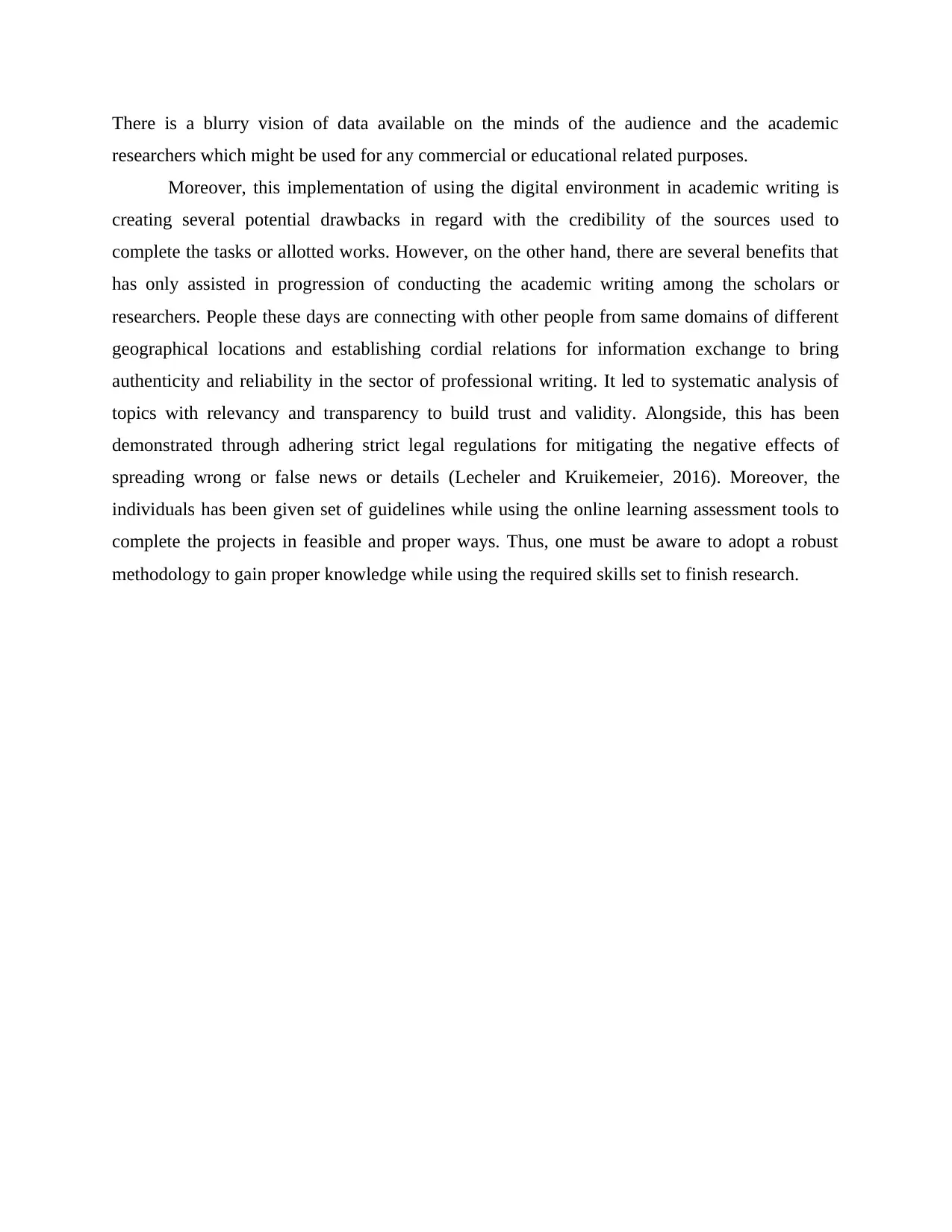
There is a blurry vision of data available on the minds of the audience and the academic
researchers which might be used for any commercial or educational related purposes.
Moreover, this implementation of using the digital environment in academic writing is
creating several potential drawbacks in regard with the credibility of the sources used to
complete the tasks or allotted works. However, on the other hand, there are several benefits that
has only assisted in progression of conducting the academic writing among the scholars or
researchers. People these days are connecting with other people from same domains of different
geographical locations and establishing cordial relations for information exchange to bring
authenticity and reliability in the sector of professional writing. It led to systematic analysis of
topics with relevancy and transparency to build trust and validity. Alongside, this has been
demonstrated through adhering strict legal regulations for mitigating the negative effects of
spreading wrong or false news or details (Lecheler and Kruikemeier, 2016). Moreover, the
individuals has been given set of guidelines while using the online learning assessment tools to
complete the projects in feasible and proper ways. Thus, one must be aware to adopt a robust
methodology to gain proper knowledge while using the required skills set to finish research.
researchers which might be used for any commercial or educational related purposes.
Moreover, this implementation of using the digital environment in academic writing is
creating several potential drawbacks in regard with the credibility of the sources used to
complete the tasks or allotted works. However, on the other hand, there are several benefits that
has only assisted in progression of conducting the academic writing among the scholars or
researchers. People these days are connecting with other people from same domains of different
geographical locations and establishing cordial relations for information exchange to bring
authenticity and reliability in the sector of professional writing. It led to systematic analysis of
topics with relevancy and transparency to build trust and validity. Alongside, this has been
demonstrated through adhering strict legal regulations for mitigating the negative effects of
spreading wrong or false news or details (Lecheler and Kruikemeier, 2016). Moreover, the
individuals has been given set of guidelines while using the online learning assessment tools to
complete the projects in feasible and proper ways. Thus, one must be aware to adopt a robust
methodology to gain proper knowledge while using the required skills set to finish research.
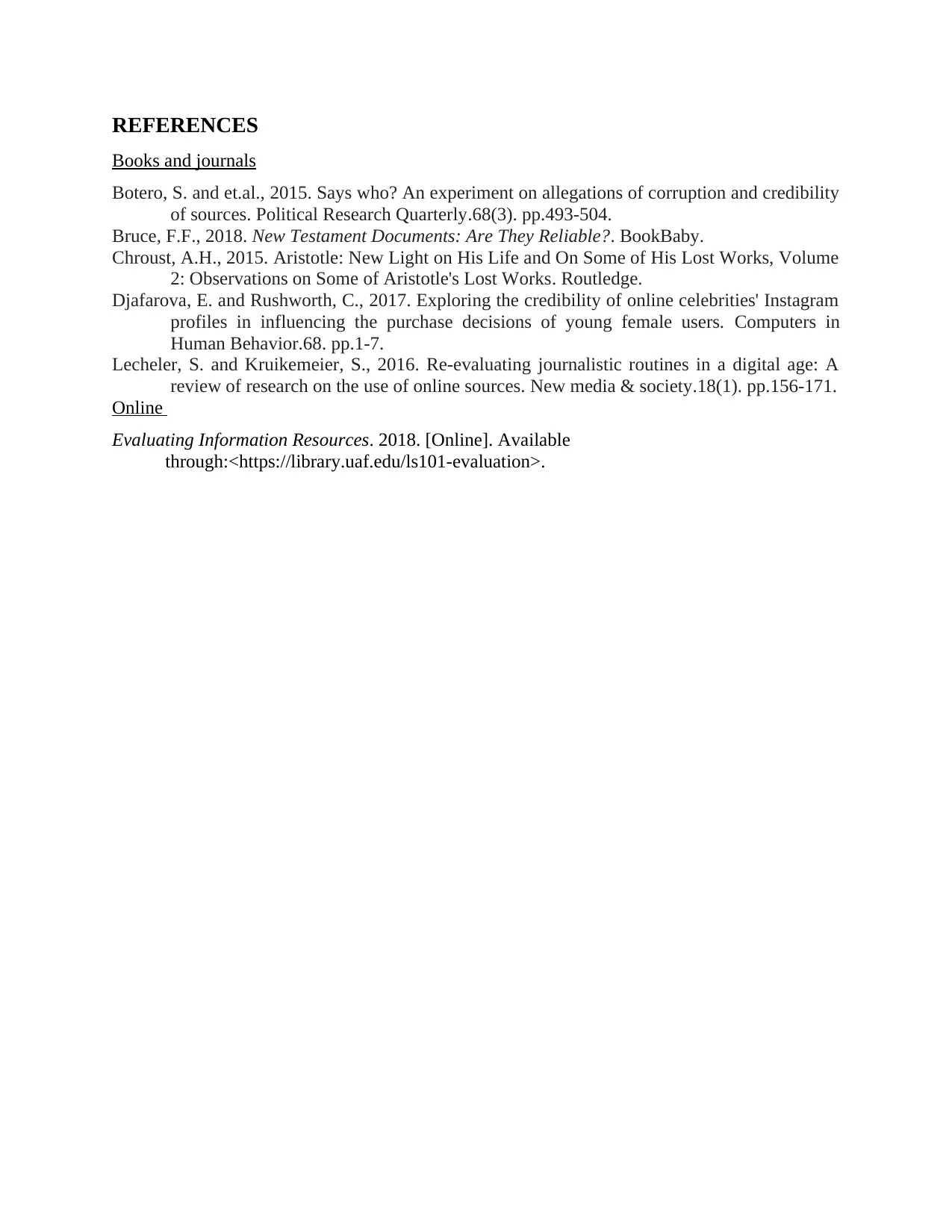
REFERENCES
Books and journals
Botero, S. and et.al., 2015. Says who? An experiment on allegations of corruption and credibility
of sources. Political Research Quarterly.68(3). pp.493-504.
Bruce, F.F., 2018. New Testament Documents: Are They Reliable?. BookBaby.
Chroust, A.H., 2015. Aristotle: New Light on His Life and On Some of His Lost Works, Volume
2: Observations on Some of Aristotle's Lost Works. Routledge.
Djafarova, E. and Rushworth, C., 2017. Exploring the credibility of online celebrities' Instagram
profiles in influencing the purchase decisions of young female users. Computers in
Human Behavior.68. pp.1-7.
Lecheler, S. and Kruikemeier, S., 2016. Re-evaluating journalistic routines in a digital age: A
review of research on the use of online sources. New media & society.18(1). pp.156-171.
Online
Evaluating Information Resources. 2018. [Online]. Available
through:<https://library.uaf.edu/ls101-evaluation>.
Books and journals
Botero, S. and et.al., 2015. Says who? An experiment on allegations of corruption and credibility
of sources. Political Research Quarterly.68(3). pp.493-504.
Bruce, F.F., 2018. New Testament Documents: Are They Reliable?. BookBaby.
Chroust, A.H., 2015. Aristotle: New Light on His Life and On Some of His Lost Works, Volume
2: Observations on Some of Aristotle's Lost Works. Routledge.
Djafarova, E. and Rushworth, C., 2017. Exploring the credibility of online celebrities' Instagram
profiles in influencing the purchase decisions of young female users. Computers in
Human Behavior.68. pp.1-7.
Lecheler, S. and Kruikemeier, S., 2016. Re-evaluating journalistic routines in a digital age: A
review of research on the use of online sources. New media & society.18(1). pp.156-171.
Online
Evaluating Information Resources. 2018. [Online]. Available
through:<https://library.uaf.edu/ls101-evaluation>.
⊘ This is a preview!⊘
Do you want full access?
Subscribe today to unlock all pages.

Trusted by 1+ million students worldwide
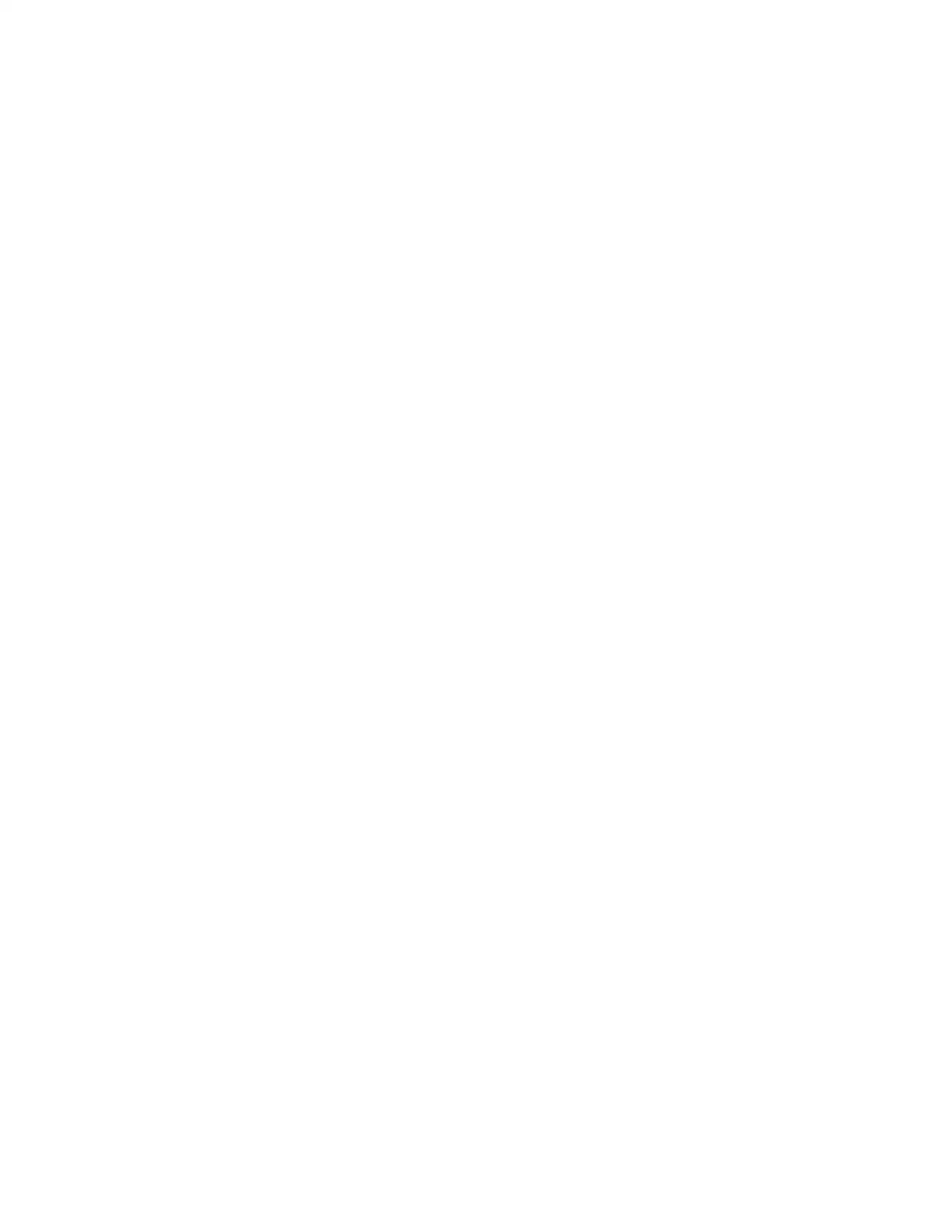
Paraphrase This Document
Need a fresh take? Get an instant paraphrase of this document with our AI Paraphraser
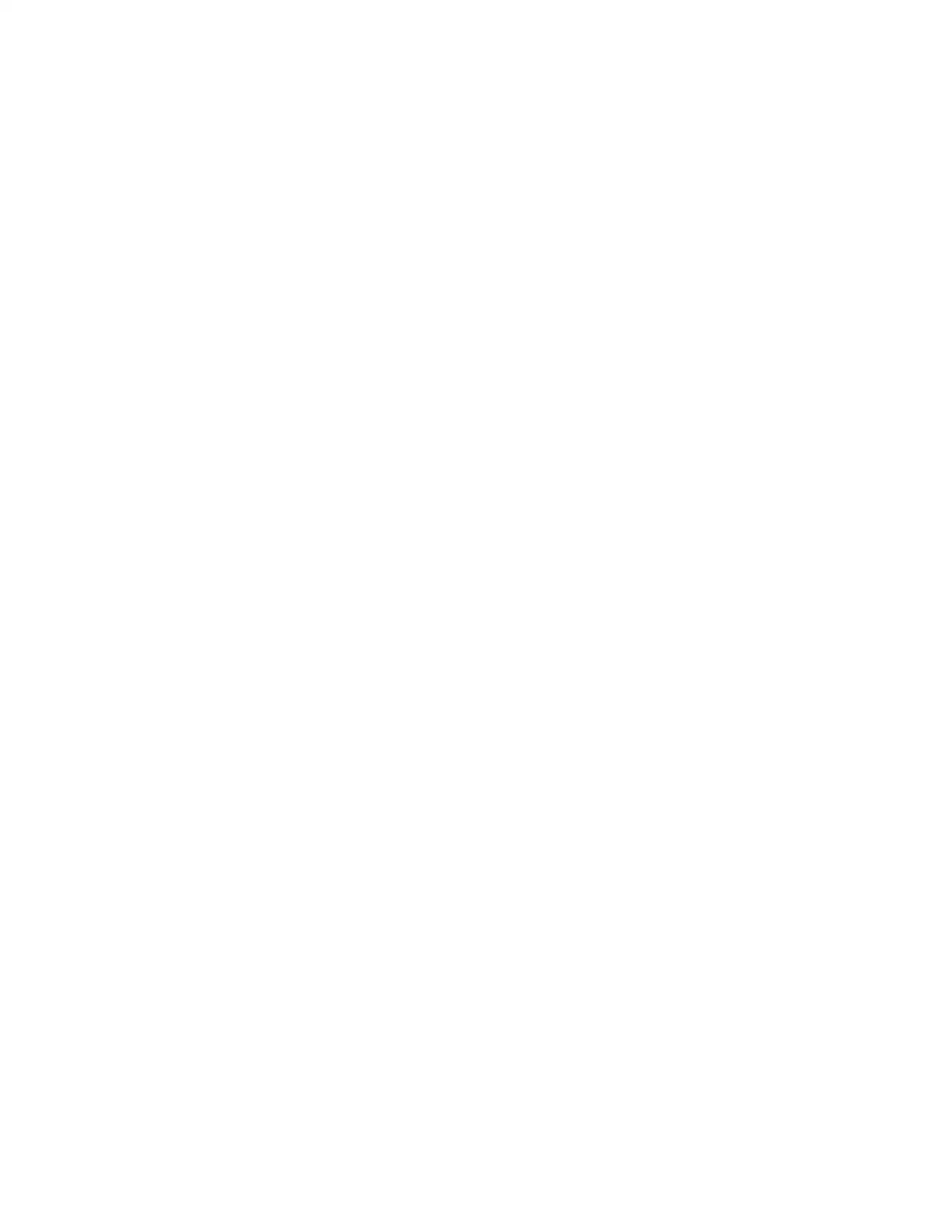
⊘ This is a preview!⊘
Do you want full access?
Subscribe today to unlock all pages.

Trusted by 1+ million students worldwide
1 out of 9
Related Documents
Your All-in-One AI-Powered Toolkit for Academic Success.
+13062052269
info@desklib.com
Available 24*7 on WhatsApp / Email
![[object Object]](/_next/static/media/star-bottom.7253800d.svg)
Unlock your academic potential
Copyright © 2020–2026 A2Z Services. All Rights Reserved. Developed and managed by ZUCOL.




